|
6/18/2012 I will love, if another hates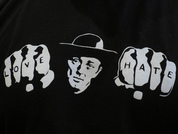 "I will love, if another hates. I will gain a balance on the side of good, my true being. This alone gives me the forces of God wherewith to overcome all error." (Miscellaneous Writings 1883-1896, 104) These immortal words of Mary Baker Eddy rang through to my thought yesterday as I heard a powerful story recounted by Ulrike Prinz, CS, of Hamburg, Germany, in her lecture entitled "A Christian Science Response to Hate and Violence." I was very moved by what I heard, and I am grateful to have found the source of the story on the internet. At the bottom of this post, you will find hyperlinks to the original book and biographical info on the co-authors. 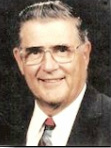 George Ritchie, PhD "When the war in Europe ended in May 1945, the 123rd Evac entered Germany with the occupying troops. I was part of a group assigned to a concentration camp near Wuppertal, charged with getting medical help to the newly liberated prisoners, many of them Jews from Holland, France, and eastern Europe. This was the most shattering experience I had yet had; I had been exposed many times by then to sudden death and injury, but to see the effects of slow starvation, to walk through those barracks where thousands of men had died a little bit at a time over a period of years, was a new kind of horror. For many it was an irreversible process: we lost scores each day in spite of all the medicine and food we could rush to them. "Now I needed my new insight indeed. When the ugliness became too great to handle I did what I had learned to do. I went from one end to the other of that barbed wire enclosure looking into men's faces until I saw looking back at me the face of Christ. "And that's how I came to know Wild Bill Cody. That wasn't his real name. His real name was seven unpronounceable syllables in Polish, but he had long drooping handlebar mustaches like pictures of the old western hero, so the American soldiers called him Wild Bill. He was one of the inmates of the concentration camp, but obviously he hadn't been there long: his posture was erect, his eyes bright, his energy indefatigable. Since he was fluent in English, French, German and Russian, as well as Polish, he became a kind of unofficial camp translator. 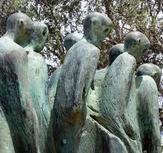 "We came to him with all sorts of problems; the paper work alone was staggering in attempting to relocate people whose families, even whole hometowns, might have disappeared. But though Wild Bill worked fifteen and sixteen hours a day, he showed no signs of weariness. While the rest of us were drooping with fatigue, he seemed to gain strength. "We have time for this old fellow," he'd say."He's been waiting to see us all day." His compassion for his fellow-prisoners glowed on his face, and it was to this glow that I came when my own spirits were low. "So I was astonished to learn when Wild Bill's own papers came before us one day, that he had been in Wuppertal since 1939! For six years he had lived on the same starvation diet, slept in the same airless and disease-ridden barracks as everyone else, but without the least physical or mental deterioration. "Perhaps even more amazing, every group in the camp looked to him as a friend. He was the one to whom quarrels between inmates were brought for arbitration. Only after I'd been at Wuppertal a number of weeks did I realize what a rarity this was in a compound where the different nationalities of prisoners hated each other almost as much as they did the Germans.  As for the Germans, feelings against them ran so high that in some of the camps liberated earlier, former prisoners had seized guns, run into the nearest village and simply shot the first Germans they saw. Part of our instructions were to prevent this kind of thing and again Wild Bill was our greatest asset, reasoning with the different groups, counseling forgiveness. "It's not easy for some of them to forgive," I commented to him one day as we sat over mugs of tea in the proceeding center. "So many of them have lost members of their families." "Wild Bill leaned back on the upright chair and sipped at his drink. "We lived in the Jewish section of Warsaw," he began slowly, the first words I had heard him speak about himself. 'My wife, our two daughters, and our three little boys. When the Germans reached our street they lined everyone against a wall and opened up with machine guns. I begged to be allowed to die with my family, but because I spoke German they put me in a work group." "He paused, perhaps seeing again his wife and children. 'I had to decide right then,' he continued, 'whether to let myself hate the soldiers who had done this. It was an easy decision, really. I was a lawyer. In my practice I had seen too often what hate could do to people's minds and bodies. Hate had just killed the six people who mattered most to me in the world. I decided then that I would spend the rest of my life, whether it was a few days or many years, loving every person I came in contact with.'" (An excerpt from the book "Return from Tomorrow" by George G. Ritchie with Elizabeth Sherrill, published by Fleming H. Revell, A division of Baker Book House, Grand Rapids, MI., pgs. 113-116) Thank you, Ulrike Prinz, for bringing this story out for your audience in Paris. Love it? Please share it. Let's work together to share the love.
Your shares reach and bless many, many others. If you aren't yet a subscriber, a full-text version of the blog can be delivered to your email inbox. It's easy to sign up in the sidebar. You may also wish to: VISIT MY WEBSITE HOME PAGE READ MORE BLOG POSTS FIND A LIST OF MY OTHER PUBLISHED CONTENT 12/21/2011 Joy to the World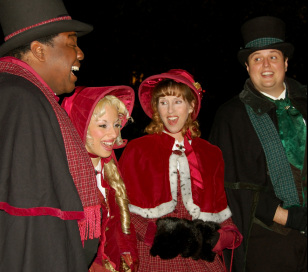 _For many years, Our large immediate family would gather at my home every year for a holiday meal mid-December. This allowed for each couple to have Thanksgiving and Christmas with their kids and in-laws in their own homes, but also gave us a chance to have a special day together. The first year I hosted the dinner, I prepared way too much food. The day after, I spontaneously called up a few friends and invited them to come to help us eat the leftovers, and suggested we could go out Christmas caroling before the meal. Most everyone accepted with enthusiasm. But one couple asked if they could come to the meal but skip the singing. Knowing that we lived in a predominantly Jewish neighborhood, they were concerned that our neighbors would be offended by the carols. |

Find me on YouTube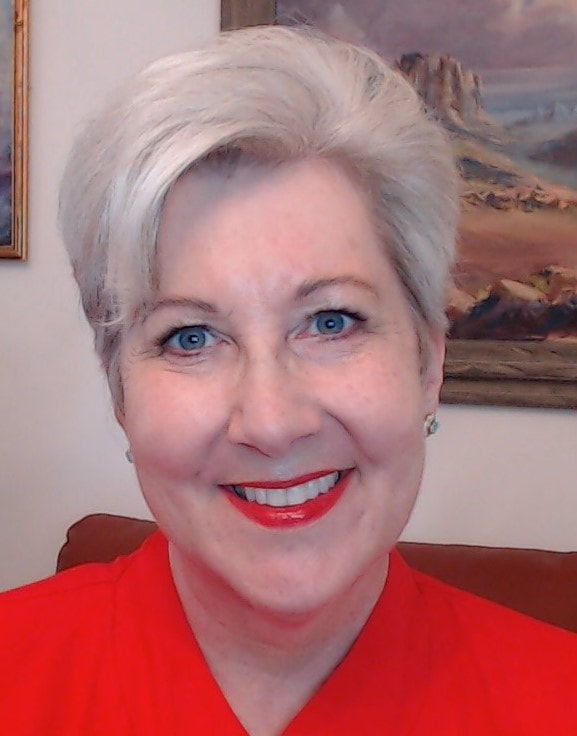
I have practiced Christian Science professionally in some form since 1979. But my journey with Christian Science started in a Sunday school where as a young child I was taught the Scriptures and some simple basics of Jesus' method of scientific Christian healing. A significant experience at the age of twelve opened my eyes to the great potential of this practice. After impaling my foot on a nail, I prayed the way I had learned in Sunday school. Within moments the pain stopped and healing began. By the next morning the wound had disappeared completely. Having experienced the great potential of Christian Science, there would be no turning back. |
INFORMATION |
SERVICES |
HELP |
© 2011-2024 Michelle Boccanfuso Nanouche, CSB. All rights reserved. Pages updated July 1, 2024.

 RSS Feed
RSS Feed
